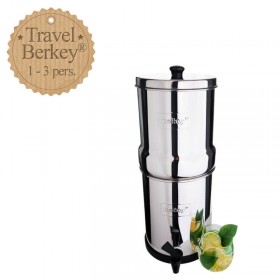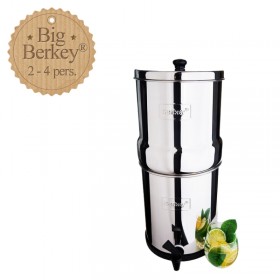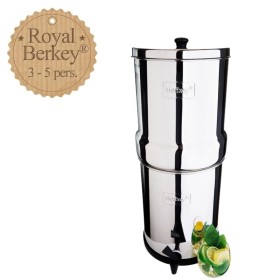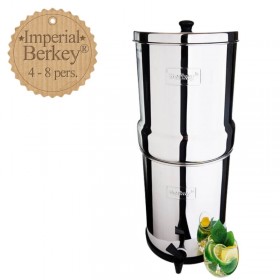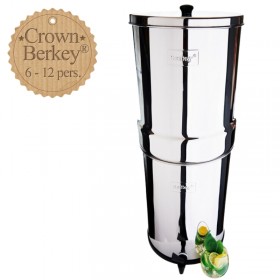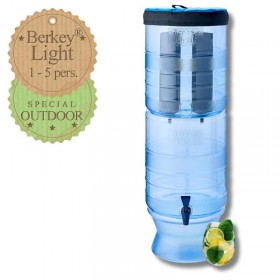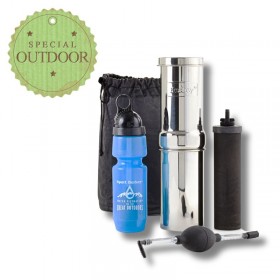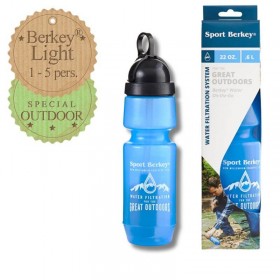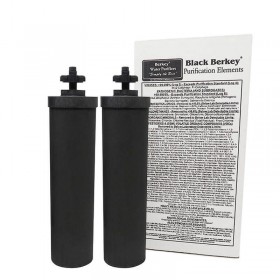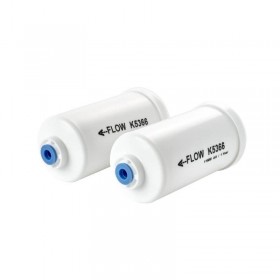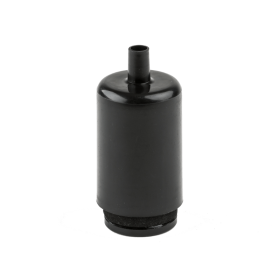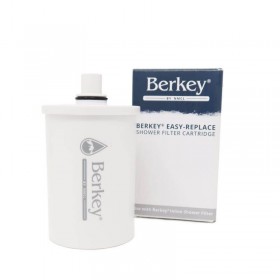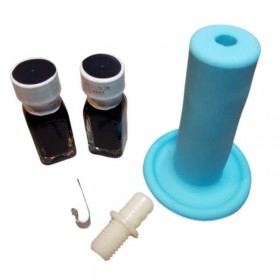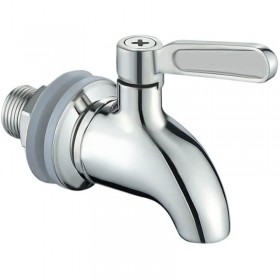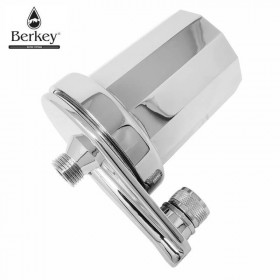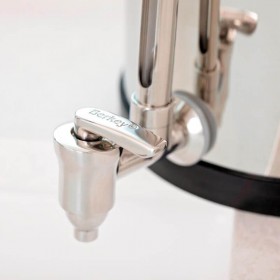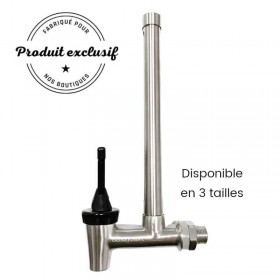Berkey® vs. Brita
Brita has been marketing water filtration systems for years. These devices have evolved over time, and today's home filtration range consists of carafe filters and tap filters. In both cases, the level of filtration is quite similar. Let's take a closer look.
Useful Volume
Berkey® has considered all scenarios and offers systems suitable for everyone, whether you live alone or have a large family, in the city, or in an isolated place without access to tap water. From the smallest model to the largest, we have the Travel Berkey®, with a capacity of 5.6 liters, designed for one or two people, up to the Crown Berkey®, with a capacity of 22.7 liters, which can filter over 2000 liters per day when equipped with additional filters!
Brita offers different sizes of carafes. Most have a capacity of 2.4 liters, and the largest has a capacity of 3.5 liters. There is also a "water dispenser" with a capacity of 8.2 liters, but it can only hold 5.2 liters of filtered water.
Filter Replacement Cost
Filtration performance is the primary quality of a water filter. This is a topic we will address shortly. But another important criterion is the cost per filtered liter, in other words, the lifespan of the filtration elements and their cost. Even though the initial acquisition cost of a Berkey® system is higher than that of a pitcher filter, the pair of Black Berkey® filters provided with our water purifiers has a capacity of 22,700 liters, which ultimately costs less than a cent per filtered liter.
Brita cartridges for their carafes have a capacity of 100 liters and must be replaced every 4 weeks. In the end, given the price of these filter cartridges, to match the capacity of a single pair of Black Berkey® filters (22,700 liters) provided with each Berkey® system, you would need to spend 1362€.
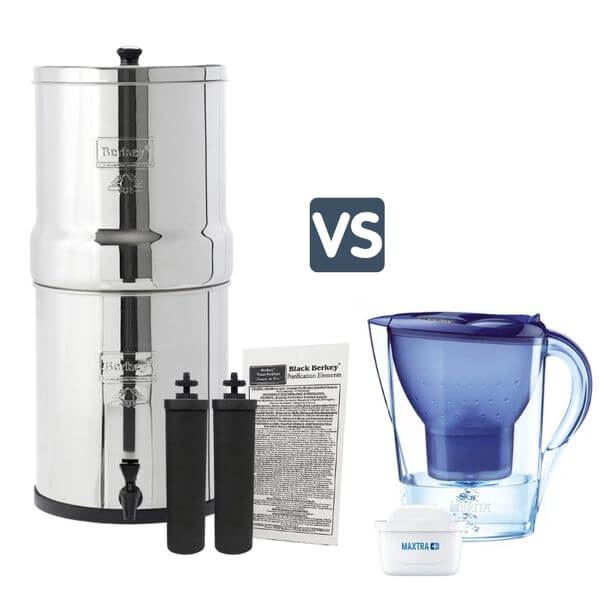
The useful capacity of a filter element before replacement and its acquisition cost are more important criteria than they seem. If you find it useful to filter your tap water with a pitcher filter, it is because you think or know it is polluted. If this is the case, filtering your drinking water is good, but it is not enough. This filtered water should also be used for your hot beverages (tea, coffee, herbal tea...) and for cooking your pasta, rice, vegetables... because boiling water does not remove pollutants! Consequently, for a family of 4, an average of 8 liters of filtered water is used per day. With a Brita cartridge capacity of 100 liters, that's 12.5 days of use. Would you change your filters at least twice a month? Have you calculated the cost of changing filters twice a month?
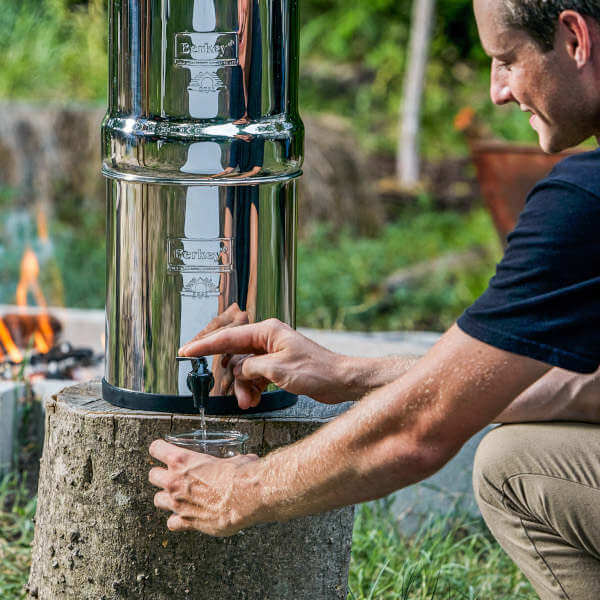
Filtration Capability
Berkey® clearly demonstrates transparency by publishing analysis results conducted by an independent laboratory. These analyses detail all the pollutants treated by the Black Berkey® filtration elements and their removal rates. Chemicals, heavy metals, pesticides, pharmaceutical residues, bacteria, viruses—the list is long and well-documented. Black Berkey® filters can remove 100% of pathogenic substances from ordinary drinking water. Additionally, Berkey® systems are classified as water purifiers, effective against viruses and capable of making water from any source potable*.
Brita's motto is "Brita filter cartridges give you purer tap water". The filtration details only mention reducing tap water hardness, helping protect household appliances, reducing certain heavy metals (lead, copper), capturing chlorine and substances that can alter taste, and offering filtered water with a pleasant taste. Even though it has been a popular brand for many years, Brita filters are ultimately not very effective at removing the increasing number of residual pollutants from tap water. Indeed, Brita filters cannot compare to the excellent performance of Black Berkey® filters.
Conclusion
As you can see, Berkey® filters come out win in this comparison, being much more versatile, adaptable to all family sizes and uses, much more effective in filtration capacity, and also cheaper in terms of price and maintenance costs, even if the initial purchase is more expensive.
Tests have been conducted specifically on heavy metals and radioactive isotopes by an independent laboratory on various filtration systems. The Brita filter is part of these tests, and you can consult the results on this page (in English). You will see that the results are very mediocre, and even poor on aluminum as the filters increase its level (see here for a summary table).
You can find the model that meets your needs by purchasing a Berkey® system with confidence from Berkey® France Millenium. You will acquire an efficient, durable system that provides potable, pure, and healthy water for a long time.

